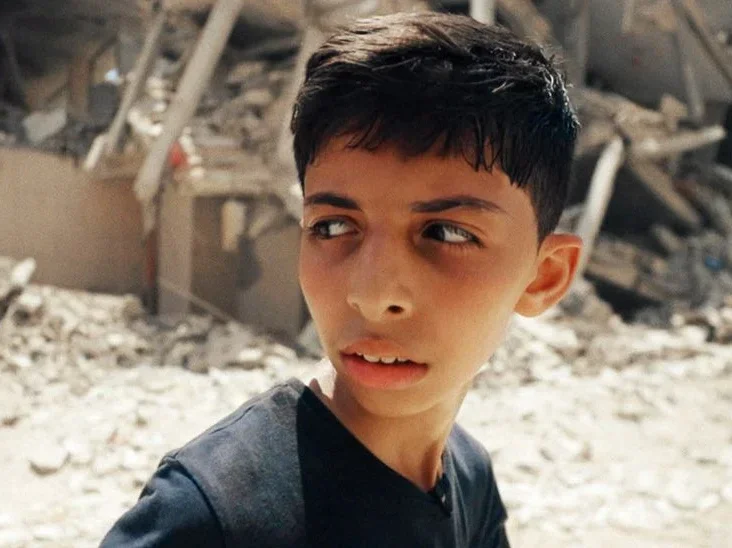
The BBC’s self-review has found using a child narrator for a Gaza documentary was “wrong” as an editorial concept, after confirming the boy is the son of a Hamas official.
The BBC’s documentary, Gaza: How To Survive A Warzone, was pulled from iPlayer in February after it emerged that its 13-year-old narrator is the son of the deputy minister of agriculture in Gaza.
A self-conducted review of the documentary, created with production company Hoyo Films, was carried out by BBC director of editorial complaints Peter Johnston.
He found the child narrator concept was “wrong” and “not appropriate”.
“Any proposal to have a child as a narrator requires careful consideration in the circumstances of that specific programme,” the report said, adding it may be “suitable” for some programmes, but this particular boy had his narration “highly scripted”, meaning there was a “limited portrayal of his background, story and life”.
In addition, he had to “carry the rights-of-reply of others, in particular the IDF”.
“There should have been more comprehensive scrutiny and discussion by the BBC around the proposed role of the narrator and the risks of this editorial concept,” Johnston wrote.
His report included interviews of ten individuals, including BBC staff, as well as reviews of footage and documents.
Film-makers knew of Hamas links but did not tell BBC
The programme has also come under fire for “breaching” editorial guidelines and not being “sufficiently proactive” with editorial checks, after it was discovered that the narrator is the son of Hamas official Ayman Alyazouri.
The BBC became aware of these links in February 2025. However, three employees of Hoyo Films discovered this information in July 2024.
Hoyo Films told Johnston that because the Gazan civil government had not been functioning since 2023, the father was no longer believed to be in employment, and they believed there was a “clear distinction between officials and ministers working for the Gazan civil government, and Hamas”.
The BBC has said Hoyo Films holds “most responsibility” for this failure, in reference to the company failing to inform BBC of the “editorial importance” of the boy’s family links.
However, the BBC also bears “some” responsibility in breaching its own editorial guidelines, “specifically with regards to misleading audiences”.
“While the BBC remains ultimately editorially responsible for the programme’s content,” the report said, “[it] was reliant on the production company sharing any material information which it learned during the production process with the BBC.”
The report also said it had seen no evidence “to support the suggestion that the narrator’s father or family influenced the content of the programme in any way”.
A “disturbance fee” of $1000 (£795) was paid to the narrator’s sister in lieu of his mother not having a bank account, and the boy was also given a second-hand phone and computer game gift card, which Johnston found to be a “reasonable” payment.
While the report concluded there were no issues relating to accuracy, fairness or impartiality of reporting in relation to the programme, it made a series of recommendations to the BBC including subjecting the narrator to a higher level of scrutiny.
‘Significant failing’
BBC director general Tim Davie said the report “identifies a significant failing in relation to accuracy”.
“We will now take action on two fronts,” he continued. “Fair, clear and appropriate actions to ensure proper accountability and the immediate implementation of steps to prevent such errors being repeated.”
In response to the report, when asked if she still had confidence in Davie, culture secretary Lisa Nandy said: “It’s not for the government to say who should and shouldn’t work at the BBC.
“My job is to make sure that we uphold the highest standards and that the public and parliament can have confidence in the BBC.
“I think, given the recent events, that has been called into question, but the BBC in recent weeks has made big strides to try to reset that relationship with the public and show that they have grip on the very serious issues.
“It is important that the BBC has acknowledged that there have been a series of catastrophic failures over recent weeks.”
The BBC has not named any individuals facing disciplinary action.
The BBC Board said: “Nothing is more important than trust and transparency in our journalism. We welcome the actions the executives are taking to avoid this failing being repeated in the future.”
Report of the Editorial Review into “Gaza: How to Survive a Warzone”
Email pged@pressgazette.co.uk to point out mistakes, provide story tips or send in a letter for publication on our "Letters Page" blog
